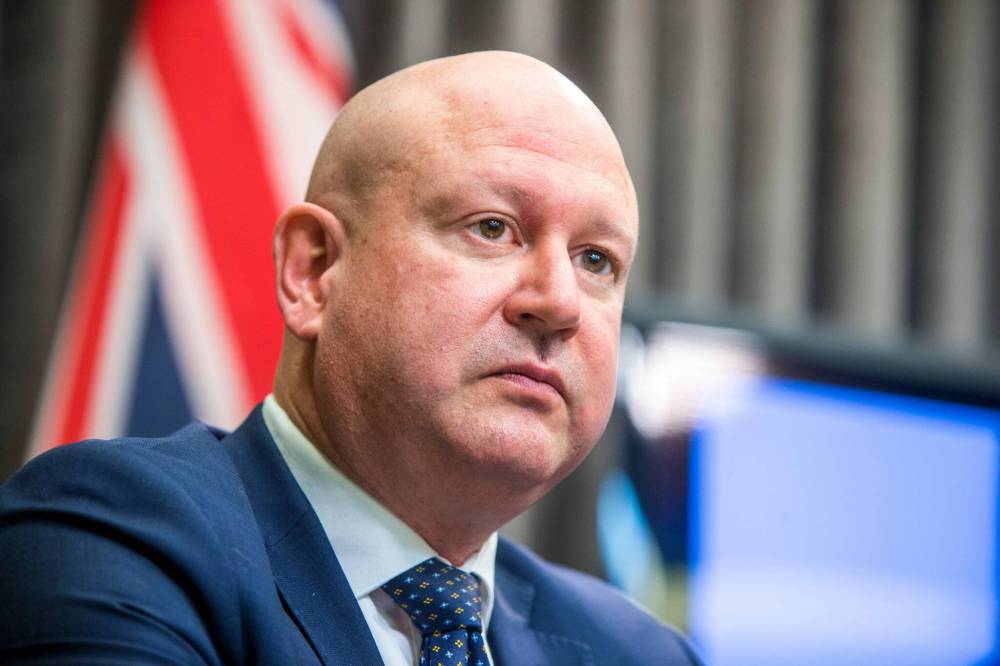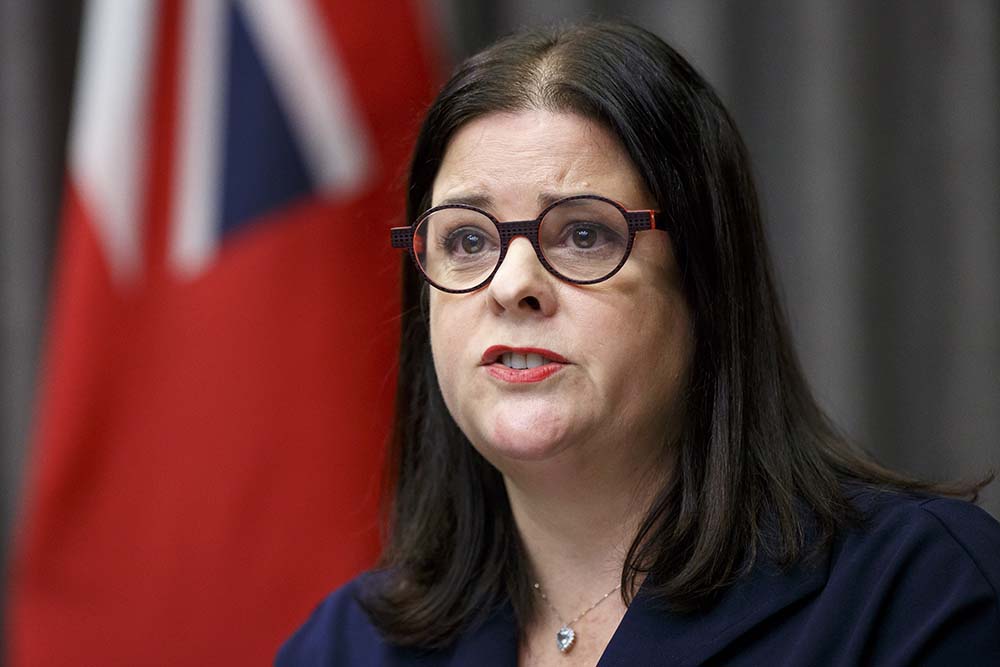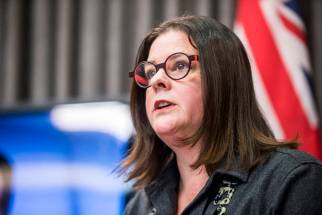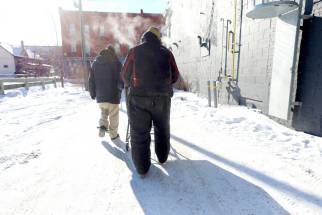Catastrophe one misstep away in Stefanson’s high-wire balancing act
Read this article for free:
or
Already have an account? Log in here »
To continue reading, please subscribe:
Monthly Digital Subscription
$0 for the first 4 weeks*
- Enjoy unlimited reading on winnipegfreepress.com
- Read the E-Edition, our digital replica newspaper
- Access News Break, our award-winning app
- Play interactive puzzles
*No charge for 4 weeks then price increases to the regular rate of $19.00 plus GST every four weeks. Offer available to new and qualified returning subscribers only. Cancel any time.
Monthly Digital Subscription
$4.75/week*
- Enjoy unlimited reading on winnipegfreepress.com
- Read the E-Edition, our digital replica newspaper
- Access News Break, our award-winning app
- Play interactive puzzles
*Billed as $19 plus GST every four weeks. Cancel any time.
To continue reading, please subscribe:
Add Free Press access to your Brandon Sun subscription for only an additional
$1 for the first 4 weeks*
*Your next subscription payment will increase by $1.00 and you will be charged $16.99 plus GST for four weeks. After four weeks, your payment will increase to $23.99 plus GST every four weeks.
Read unlimited articles for free today:
or
Already have an account? Log in here »
Hey there, time traveller!
This article was published 13/01/2022 (1426 days ago), so information in it may no longer be current.
There’s little doubt Premier Heather Stefanson rejected calls by public-health officials for stricter measures to curb the rapid spread of the Omicron variant.
Judging by her surprising comments this week, it may not have been the first time she pushed back against recommendations to impose more stringent health orders.
Dr. Jazz Atwal, the deputy chief provincial public health officer, was asked during a news conference Wednesday whether public-health officials recommended stricter measures. Before he could respond, Stefanson jumped in to take the question.
She didn’t answer, speaking instead about the need for Manitobans to learn to live with the coronavirus.
She (Premier Heather Stefanson) didn’t answer, speaking instead about the need for Manitobans to learn to live with the coronavirus.
Atwal was asked a second time, but refused to answer directly.
When asked a third time, Stefanson interrupted again, but was cut off by a reporter who said the question was for Atwal, not her. She giggled. Stefanson clearly didn’t like the line of questioning.
“We do provide recommendations to government and I think anything further would have to come from government in relation to answering your question,” said Atwal, who wasn’t about to spill the beans on discussions that had taken place behind closed doors.
Dr. Brent Roussin, the chief provincial public health officer, was asked the same question Thursday during an online news conference and said the specifics of those recommendations are “privileged”.

Stefanson didn’t say so explicitly, but she hinted tighter restrictions were on the table. It’s what she said next that was so revealing: the premier criticized her own government for relying too heavily on public-health measures.
She suggested health officials have had too much clout during the pandemic when it comes to issuing orders, such as banning household gatherings. She said other considerations — the effects of business closures and the impact on Manitobans’ mental health — have not been given sufficient weight.
“A lot of emphasis was put solely at the feet of public health and that’s a lot of responsibility in one place,” she said. “I think what we need is to go and have a more balanced approach moving forward.”
“I think what we need is to go and have a more balanced approach moving forward.” – Premier Heather Stefanson
The premier said she will still listen to public health, but will consult more broadly with Manitobans, including businesses, when making decisions.
“We are policy-makers as government and it’s up to us to ensure that we take a balanced approach moving forward,” she said.

Stefanson’s aversion to restrictions may help explain the province’s refusal during the third wave of the pandemic to impose stricter measures. Despite soaring COVID-19 cases in neighbouring provinces, the Progressive Conservative government rejected repeated calls from outside experts to take further steps to contain transmission. The results were deadly: cases skyrocketed, hospitals were overwhelmed and 57 intensive-care unit patients were airlifted to facilities in other provinces.
Brian Pallister, the now-retired Manitoba premier, was thought to be the leading opponent of stricter measures at the time. However, given this week’s revelations, Stefanson — who was health minister during the third wave — may have played a more influential role than originally thought.
Stefanson– who was health minister during the third wave – may have played a more influential role than originally thought.
Stefanson is right to say that decisions around public-health measures ultimately rest with the premier and cabinet, not public-health officials. It’s up to elected officials to determine what the right balance is between measures used to mitigate the spread of a virus and the unintended harm they can cause.
What’s revealing is that Stefanson doesn’t think her government got that balance right in the past. She believes there was too much emphasis on slowing the spread of the virus at the expense of the economy and on Manitobans’ mental health. It begs the question: how many more ICU patients would she have been willing to airlift out of province during the third wave if fewer restrictions were in place? How many more body bags would she have been comfortable with?
There are two sides to the “better balance” argument. The other is more deaths, more severe illness and more patients with tubes down their throats fighting for their lives in a critical-care unit.
The cost of Stefanson’s more “balanced” approach during the Omicron surge has yet to be tallied.
tom.brodbeck@freepress.mb.ca

Tom has been covering Manitoba politics since the early 1990s and joined the Winnipeg Free Press news team in 2019.
Our newsroom depends on a growing audience of readers to power our journalism. If you are not a paid reader, please consider becoming a subscriber.
Our newsroom depends on its audience of readers to power our journalism. Thank you for your support.







